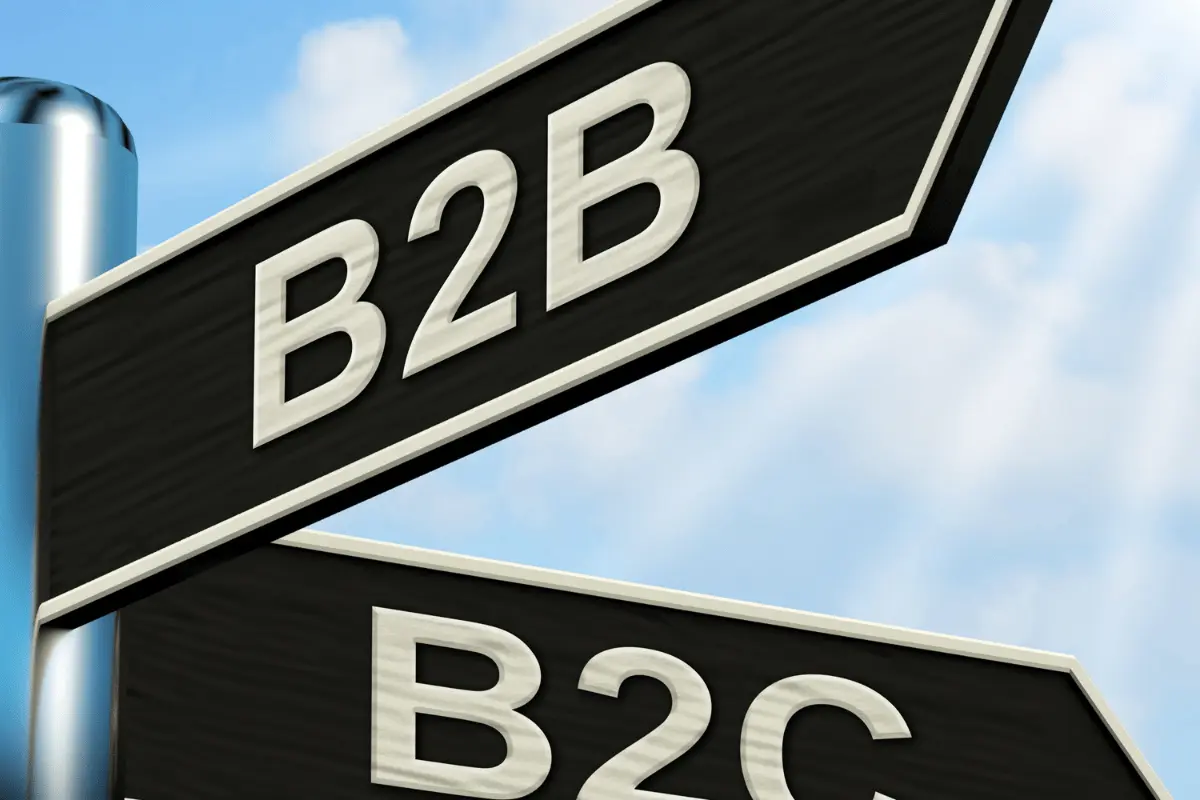When it comes to content marketing, understanding the nuances between B2B and B2C strategies is key to unlocking success in today’s competitive digital landscape.
Whether you’re targeting businesses or consumers, crafting the right message can make all the difference. Join us as we delve into the world of B2B vs. B2C content marketing and discover how tailoring your approach can lead to impactful results!
Understanding the Difference between B2B and B2C Content Marketing
B2B (business-to-business) and B2C (business-to-consumer) content marketing may seem similar on the surface, but they cater to vastly different audiences with distinct needs and preferences.
In B2B marketing, the focus is on building relationships with other businesses by providing valuable information that helps them make informed purchasing decisions. Content often revolves around industry trends, case studies, and product specifications.
On the other hand, B2C marketing targets individual consumers and aims to evoke emotions and desires that drive personal buying behavior. This type of content is more lifestyle-oriented, focusing on benefits, storytelling, and branding to resonate with a wider audience.
Understanding these distinctions is crucial for tailoring your messaging effectively. By recognizing the unique characteristics of each approach, you can create content that speaks directly to your target audience’s motivations and triggers action in ways that resonate with their specific needs.
The Importance of Target Audience in Content Marketing
Understanding your target audience is crucial in content marketing. By knowing who you are creating content for, you can tailor your messaging and approach to resonate with their needs and preferences.
Identifying the demographics, interests, and pain points of your audience allows you to craft compelling content that speaks directly to them. This personalized approach increases engagement and builds brand loyalty.
Moreover, understanding your target audience helps in selecting the right channels to distribute your content effectively. Whether it’s B2B or B2C marketing, reaching the right people at the right time is key to driving conversions.
By conducting research and analyzing data on your target audience regularly, you can stay updated on evolving trends and behaviors. This continuous insight enables you to adapt your content strategy accordingly for maximum impact.
In essence, putting emphasis on understanding your target audience sets a strong foundation for successful content marketing campaigns that drive results.
Strategies for B2B Content Marketing
When it comes to B2B content marketing, understanding your target audience is key. Research their pain points, challenges, and goals to tailor your content specifically to address their needs.
Create high-quality and informative content that showcases your industry expertise. Whitepapers, case studies, and webinars are great tools for showcasing thought leadership in the B2B space.
Utilize email marketing campaigns to nurture leads and keep them engaged with your brand. Personalization is crucial in B2B marketing – customize your messages based on the recipient’s role or industry.
Collaborate with influencers or industry experts to broaden your reach and credibility within the B2B sphere. Their endorsement can significantly impact decision-makers’ perceptions of your brand.
Analyze data regularly to track the performance of your content efforts. Adjust strategies based on metrics like lead generation, conversion rates, and ROI to continuously improve results in B2B content marketing initiatives.
Strategies for B2C Content Marketing
When it comes to B2C content marketing, engaging your audience is key. One strategy that works well is creating compelling visual content. Eye-catching images and videos can capture the attention of consumers scrolling through their feeds.
Another effective approach is leveraging social media platforms to connect with your target market. By understanding where your audience spends their time online, you can tailor your content to reach them on platforms like Instagram, Facebook, or TikTok.
Personalization is also crucial in B2C marketing. By segmenting your audience and delivering personalized messages based on their preferences and behaviors, you can boost engagement and build brand loyalty.
Additionally, incorporating user-generated content into your strategy can help establish trust with potential customers. Encouraging satisfied customers to share their experiences can provide authentic social proof for your products or services.
Don’t forget the power of storytelling in B2C content marketing. Crafting narratives that resonate with emotions can create a lasting impact and forge strong connections with consumers.
Key Metrics to Measure Success in B2B and B2C Content Marketing
When it comes to measuring the success of your content marketing efforts in the B2B and B2C realms, it’s crucial to focus on specific key metrics that align with your business goals. For B2B content marketing, metrics like lead generation, conversion rates, and customer acquisition cost are essential indicators of success. These metrics help you understand how effectively your content is driving valuable actions from other businesses.
On the other hand, for B2C content marketing, metrics such as website traffic, engagement rates, and social media interactions play a significant role in gauging success. By analyzing these metrics closely, you can gain insights into how well your content resonates with individual consumers and influences their purchasing decisions.
Regardless of whether you’re targeting businesses or consumers, tracking key performance indicators like ROI, click-through rates,dwell time,and bounce rate will provide valuable data on the effectiveness of your content strategy. Remember that continuous monitoring and optimization based on these metrics are essential for long-term success in both B2B and B2C content marketing initiatives.
Case Studies: Successful Examples of B2B and B2C Content Marketing
Let’s dive into some real-life examples of how B2B and B2C companies have aced their content marketing game.
One standout case is IBM, a B2B giant known for its thought leadership content. By creating insightful whitepapers, webinars, and podcasts targeting industry professionals, IBM has positioned itself as an authority in the tech space.
On the other hand, in the B2C realm, we have Nike setting the bar high with their engaging storytelling through videos and social media campaigns. By tapping into emotions and inspiring their audience to push boundaries, Nike has built a loyal following beyond just selling products.
Another noteworthy example is HubSpot, a leading B2B software company that offers valuable resources like templates and guides for marketers looking to upskill themselves. Their inbound marketing approach has not only attracted customers but also nurtured long-term relationships.
In contrast, Glossier stands out in the B2C sector by leveraging user-generated content on platforms like Instagram to create a community-driven brand image that resonates with millennials seeking authenticity in beauty products.
Choosing the Right Approach for Your Business Needs
Choosing the right approach for your business needs when it comes to content marketing is crucial. Understanding the differences between B2B and B2C content marketing is essential in creating a successful strategy tailored to your target audience.
Whether you are focusing on building relationships with other businesses or appealing directly to consumers, having a clear understanding of who you are targeting will guide your content creation efforts. By implementing effective strategies specific to either B2B or B2C audiences, you can maximize engagement and drive results.
By tailoring your content marketing approach to suit the unique needs of your business and target audience, you can effectively reach and engage potential customers while driving growth and achieving tangible results.



